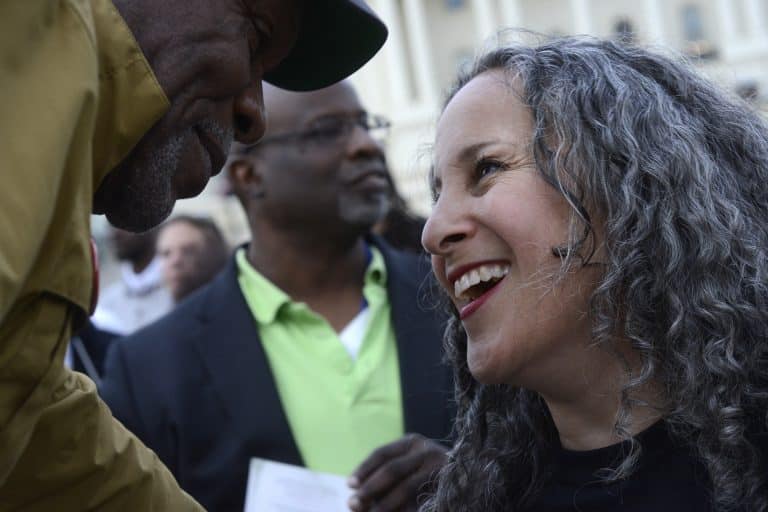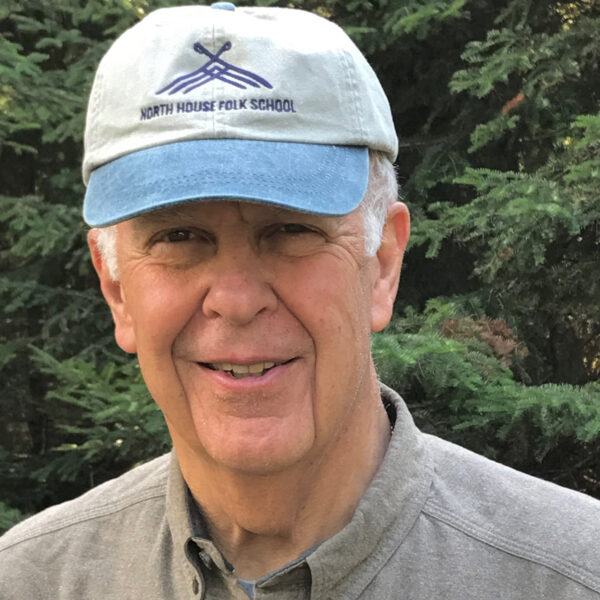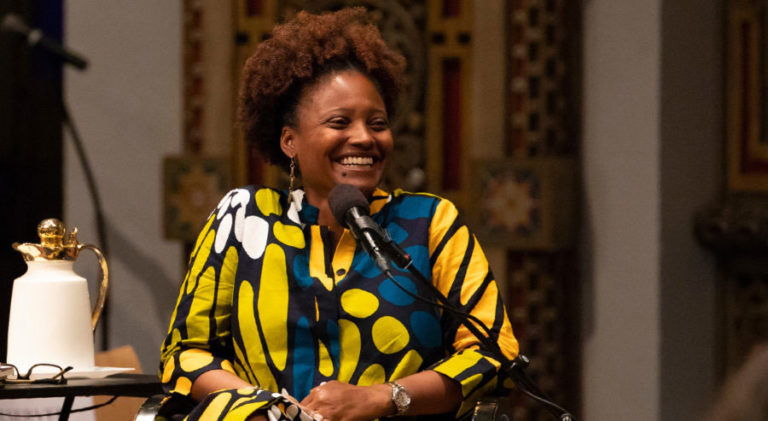
Image by Stephen Melkisethian/Flickr, Attribution-NonCommercial-NoDerivs.
The Vitality of Diversity
Sartre famously said, “Hell is other people.” I wonder what Jean-Paul was doing just before he wrote those words. Enduring a business lunch where the main course was braggadocio? Or an employer-mandated pep-talk by a “motivational speaker?” Or any cocktail party, anytime, anywhere? If so, I feel his pain.
But as a generalization, Sartre’s definition of hell is a reach too far for me. My hell is much more specific. It’s a place populated exclusively by straight white males over fifty who have college degrees and financial security — which is to say, people like me. For me, variety is more, much more, than the spice of life. It’s a basic ingredient of a life lived fully and well.
At a time when so much of American life is driven by fear of “otherness” — by a false and toxic nostalgia for “the good old days” when “we were all alike” — let’s ask where we would be without diversity. What price would we pay if all our companions came from backgrounds akin to our own and looked at life more or less the way we do?
Mother Nature can help us answer that question, as I learned when I visited a friend who lives in rural Minnesota. We took a drive on the back roads, passing acre after acre of corn lined up in orderly, homogeneous, and mind-numbing rows. As we crested a hill, my friend broke the silence: “Check it out.”
There, afloat in the sea of uniformity called agribusiness, was an island of wind-blown grasses and wildflowers, a riot of colors and textures to delight the eye. We got out of the car and walked silently through this patch of prairie my friend had helped restore, dotted with the kinds of plants whose names make a found poem: wild four o’clock, bastard toadflax, prairie smoke, amethyst shooting star. After a while, my friend spoke again, saying something like this:
“There are more than 150 species of plants on this prairie — to say nothing of the insects, birds, and mammals they attract — just as there were before the pioneers broke the sod and began farming. It’s beautiful, of course, but that’s not the whole story.
Biodiversity makes an ecosystem more creative, productive, adaptive to change, and resilient in the face of stress. The agribusiness land around us provides us with food and fuel. But we pay a very steep price for that kind of monoculture. It saps the earth’s vitality and puts the quality and sustainability of our food supply at risk. The prairie as it once was has a lot to teach us about how we need to live.”
The parallels between biodiversity and social diversity seem clear and compelling to me. Here are just a few of them:
Diversity make our lives more vital. Regular experiences of “otherness” not only bring blessed relief from the tedium of endlessly recycling the same ideas with the same people. They also dial down the fear of “the other” that keeps us from feeling at home on earth, sapping our vitality.
People who wall themselves off from diversity in gated communities and “lifestyle enclaves” become increasingly paranoid that encountering the other will put them in harm’s way. But folks who have daily experience in “the company of strangers” learn that it just isn’t so. Up close, it becomes clear that people who look and sound different from me don’t have horns — and some have haloes.
In my early thirties, on vacation in a distant state, I took a hike in the woods while my young family enjoyed the beach at a state park. An hour later, I was hopelessly lost and in a panic, worried about the setting sun and my family’s well-being. I stumbled into a small neighborhood at the edge of the forest and began knocking on doors. Four times I was turned away by people who were clearly afraid of me and my breathless plea for help. At the fifth door, the gentleman said, “Hop into my truck. I’ll have you at the beach in five minutes.”
My Good Samaritan was black, the others were white. One story does not good sociology make, but I’ve seen that pattern play out time and time again, driven not by genetics but by social experience. The white folks who turned me away either had never been lost and scared or were afraid of someone who was. But in America — with its history of slavery, Jim Crow (old and new), and sundown towns — people of color learn early in life what lost and scared feels like, and the result is often compassion.
Diversity makes us smarter and more creative. People from different backgrounds know different things and have different ways of interpreting what they know. As we come together in a “dialogue of differences,” the collective becomes smarter than any individual in it. That principle applies to everything from practical problem-solving, to scientific inquiry, to speculating on the eternal mysteries: all of us together are smarter than any one of us alone. Ask any high-tech company whose creative teams look like a good day at the United Nations.
Homogeneity dumbs us down and gets us into trouble. I mean the kind of dumb that comes, for example, from knowing so few Mexicans, or so little about them, that we’re more likely to fall for the lie that many of them are drug dealers, rapists, and assorted “bad hombres.”
Recently, some Americans have been taking a crash course in the consequences of this kind of dumb. On February 9, 2017, the much-loved manager of a Mexican restaurant in a Midwestern town was “detained” without notice and taken away from his family and his community. Later that month, one resident who supports deportations of undocumented immigrants spoke for many:
“…maybe this should all be more on a per-case basis. It’s hard to be black and white on this because there may be people like Carlos.”
Right. But wouldn’t it have been nice if this gentleman and his fellow citizens had known enough Mexicans — or had had enough moral imagination — to figure out that whole “black and white” thing before Carlos was “disappeared,” his family devastated, and his community deprived of an exemplary citizen who had lived there for a decade?
Diversity gives us a chance to increase our personal resilience. And God knows some of us need it these days. I’m one of the many weary souls who is still laughing at a line Jon Stewart, late of The Daily Show, delivered just eleven days into the current administration:
“The presidency is supposed to age the president, not the public.”
I’m 78. But for a couple of months following the presidential inauguration, I felt more like 108, asking myself, “Really? Is this the way I’m going to go out, learning daily about a fresh assault on dignity, decency, democracy, and truth itself that makes me ashamed to be an American?”
I began to recover my resilience as I talked with friends who — along with generations of their ancestors — have been targets of such assaults since the day they were born, and yet have refused to be intimidated.
My Muslim, Mexican, and African-American brothers and sisters have developed a form of spiritual alchemy that all of us can practice. It transforms the dross of political evil into the gold of political activism, revitalizing us to be the engaged citizens we should have been all along. Resilience comes from seeing people I care about take the next assault on their souls not as a reason to give up but as a source of power to keep on keeping on.
Diversity ups the odds that we will enjoy the benefits of the human comedy. Cross-cultural misunderstandings are not always train wrecks. Some of them generate humor that’s healing and life-giving.
I once spoke at a Jewish Community Center built around a beautiful garden dedicated to the memory of Jews who had been murdered in the Holocaust. After sitting quietly there for half an hour, I met with the Center’s director and told him how moved I was by this powerful witness to the suffering and the resilience of the Jewish people. He told me that the Center also tried to witness to the importance of interfaith relationships, which meant, among other things, hiring a religiously diverse staff. Then he said:
“Occasionally this leads to some laughable and lovable moments. We recently hired a Gentile as our front-office receptionist. We told her that when we answer the phone, we say, ‘Jewish Community Center — Shalom.’ I happened to be in the office when she took her first phone call and said, ‘Jewish Community Center — Shazam!’”
The goodwill laced through stories like that give me hope that we can emerge from these dangerous days on the diversity front with our humanity intact.
I recently heard an interview with Pat Buchanan, a once-major political figure who has always longed to return America to the days when white, European, Christian culture dominated. Of course, he’s delighted with the current administration’s “success” in advancing an agenda he helped set in motion, and is unfazed by our president’s multiple flaws, unforced errors, and failures.
When the interviewer asked him, in effect, “Why is diversity a problem for this nation?,” this three-time presidential aspirant said:
“Well, maybe it’s preference. I feel more comfortable. I’m a homeboy, and I feel more comfortable with the folks I grew up with.”
So there you have it, the personal truth behind much of the high-flying “make America great again” rhetoric. Pat Buchanan and his political pals want this nation to provide them with a homogeneous — read “racist and xenophobic” — comfort zone from sea to shining sea.
Mr. Buchanan is my age, and I know enough sclerotic and scared old white guys like him to feel a particle of pity. But fellas, you need to get with the program: by mid-century, the U.S. population will be over half people of color. I urge those of you who cling to your dream of the “good old days” — good for you, anyway — to take a good long nap and dream on, dream on. The rest of us will stay awake and help midwife the rebirth of America, knowing that our national nausea in this moment is just another symptom that our country is pregnant with change.
Given careful tending, America can be like that restored prairie my friend showed me, with its rich diversity of life, its vitality, creativity, resilience, and soul-satisfying array of textures and colors. Every time I touch in with that memory — or step into that social reality — my mind is renewed, my heart expanded, my spirit refreshed, and I feel at home again on the face of this good earth.

